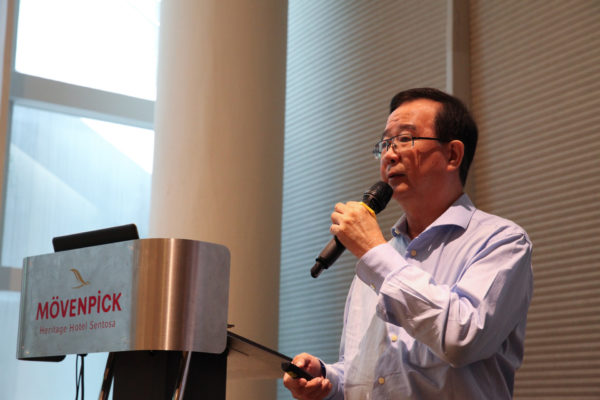
Businesses must be ready to accept change in the face of technology disruption. Such a cliched sentence that has been uttered endlessly in the past few years.
“Change or be disrupted”, “businesses must innovate or die”; “new thinking needed to overcome technology disruption”. The list is endless.
So much so that the well-used words of digital transformation and technology disruption have led some business leaders to think that technology is the new boss, business is playing second fiddle.
They cannot be any more wrong. Undoubtedly, technology is overwhelmingly crucial to business success.
But make no mistake, infocomm technology (ICT) isn’t the new boss. Business is still the boss, it continues to call the shots. The bald truth is: no business, no ICT.
Technology and business are like twins, working hand in glove, for the same goal: sustainable and profitable business. Businesses which are not technologically adept will not survive.
Just look at the way the motor companies are jumping onto the self-driving car bandwagon. If Ford, General Motors, Toyota and the rest don’t get on board, they will be overtaken by Tesla, Uber, Grab or some of the new Chinese companies.
ICT’s role is crucial. It should act like a consultant, offering various technological options. This allows that business leaders to make an informed decision on what is most appropriate for their operations.
But “what is most appropriate” means that the business leaders must have an in-depth knowledge of emerging technologies including artificial intelligence and blockchain as well as regulatory requirements.
It’s not coding they need. They need deeper understanding to, for example, discern the difference among machine learning, deep learning and artificial intelligence and what each can do for their business.
So, the announcement by the National University of Singapore on a new executive programme called Advanced Computing for Executives (ACE) is timely.
It allows business leaders to go back to school for one- to two-day courses to pick up knowledge and skills on new technologies that can be applied to their operations.
It was launched by NUS President Professor Tan Eng Chye at the Innovate Connect Economy (ICE) 2018 Conference held on July 18.
ACE which comes under the NUS School of Computing, is led by veteran ICT professional, Professor Alex Siow.
The previous CIO of the Housing & Development Board and telco Starhub, ruminated that in the past, the discussion was about how ICT should align with business.
This still holds true but with business becoming closely intertwined with technology, business leaders must now step up and be involved in technology issues.
ACE courses will specifically focus on the ABCD of the Internet economy, artificial intelligence (AI), blockchain, cloud, and data. Participants can also learn about the future of branding and retail, fintech, as well as risks associated with regulatory technology and fintech.
Fees start from $1,600 to over $4,000, though courses are eligible for the SkillsFuture and Institute of Banking and Finance (IBF) subsidies. The first two courses on Actionable Intelligence and Blockchain, will be conducted on July 19 and 20, respectively.
Open to local and foreign participants, ACE is aimed at divisional directors, section heads and country managers of medium- to large-sized companies across all industries.
By getting involved directly with technology, business leaders will be the “boss” again, to decide the future direction of their companies.
Their priority must be to quickly identify a business area or issue where the new technologies can be harnessed, get ICT involved to find different options, then select the appropriate service for implementation.
That is the way forward to change businesses, transforming them for the digital economy.






